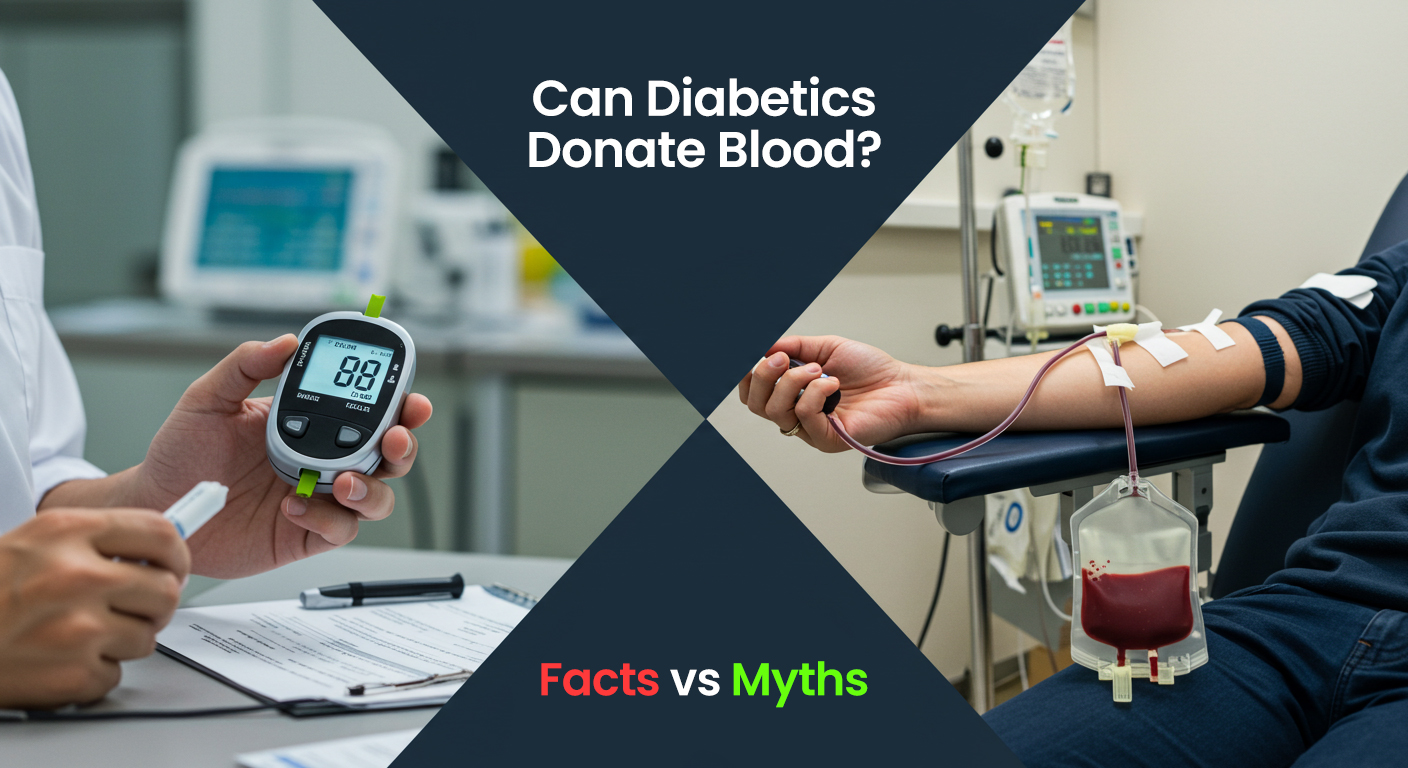
At Iswarrya Diabetes Hospital, we believe clarity matters. Understanding the facts is crucial for safe participation in this life-saving act. Here are some common myths and the truths behind them.
Fact: Individuals with diabetes mellitus can donate blood if their condition is well-controlled and they meet standard donor eligibility rules such as age, haemoglobin levels, and overall health. Maintaining stable blood sugar and having no major complications — like uncontrolled hypertension, kidney disease, or heart issues — are key factors. Modern blood banks focus on the donor’s general health rather than the mere presence of diabetes.
Well-managed diabetes is not an automatic barrier to donation, and many people successfully contribute to blood drives without any risk to themselves or recipients.
Fact: Taking insulin does not automatically disqualify someone from donating blood. Eligibility depends on overall health, stability of blood sugar, and adherence to medical advice. Blood banks may follow specific guidelines for insulin users, but having insulin therapy alone does not prevent donation. People with Type 2 diabetes on insulin can safely donate as long as their glucose levels are within target ranges and there are no severe complications such as neuropathy or kidney impairment.
Fact: Blood donation does not usually cause harmful changes in blood glucose. While the body loses a small amount of blood, the effect on glucose levels is minimal for most donors. People with diabetes should ensure their sugar levels are stable before donation. Proper hydration and a diabetes diet—with a balanced meal before and after donating—can help maintain normal blood sugar. With routine monitoring, donors can participate safely without fear of significant glucose fluctuations.
Fact: Diabetes does not compromise the quality or safety of donated blood. All blood is screened rigorously for infections, blood type compatibility, and other health parameters. As long as the donor meets the health and screening requirements, their blood is equally safe for transfusion as anyone else’s. Modern transfusion protocols guarantee that recipients receive high-quality, safe blood regardless of the donor’s diabetes status.
Fact: Many hospitals and blood banks assess eligibility individually. With medical evaluation and modern guidelines, people with diabetes who are otherwise healthy are not automatically excluded. Physicians and diabetic care specialists ensure that donation is safe for both donor and recipient. This case-by-case assessment allows well-managed diabetic patients to participate in blood donation programs confidently.
With the right guidance and monitoring, people living with diabetes can also become life-saving donors. Blood donation is a safe and meaningful way to contribute to society when diabetes is well-managed.
At Iswarrya Hospital, recognized as the best diabetes hospital in Coimbatore, patient education, individualized advice, and adherence to safe practices remain the top priority. By understanding the facts, people with diabetes can confidently participate in blood donation and make a significant difference in the lives of others.
If you’re unsure about what are diabetes symptoms or need convenient checkups, our team is here to help. From consulting an experienced diabetes doctor in Coimbatore to scheduling a home blood test in Coimbatore, we ensure accessible and reliable diabetes care for every patient.